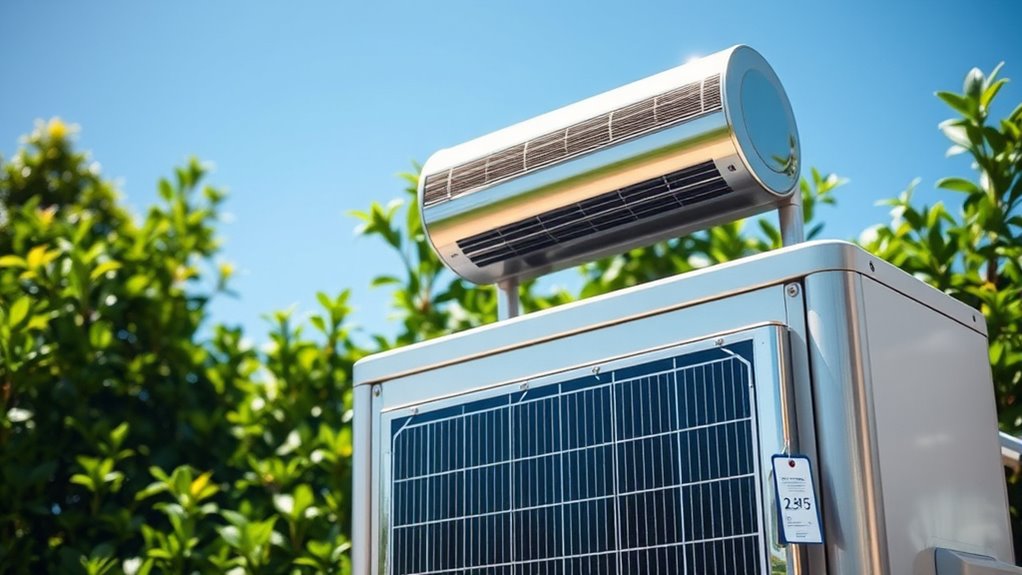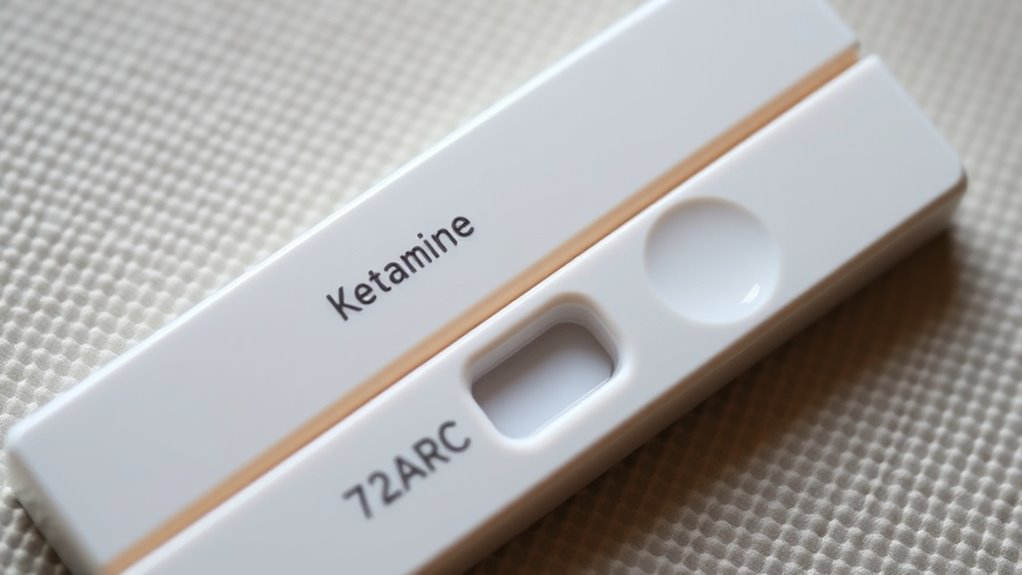
When considering a solar air conditioner in India, you’ll find that prices can vary widely. Factors like system capacity, efficiency, and installation complexity all play a role. While the initial investment may seem steep compared to traditional units, the potential for long-term savings is worth exploring. Plus, with government incentives available, the overall cost could be more manageable than you think. So, what should you know about maximizing your investment?
Key Takeaways
- Solar air conditioner prices in India vary based on system capacity and efficiency, impacting overall cost significantly.
- Initial investment for solar air conditioners is generally higher, but long-term savings on electricity can offset these costs.
- Professional installation fees and necessary permits can add to the overall price of solar air conditioning systems.
- Government incentives and rebates are available, potentially reducing the overall cost of solar air conditioners in India.
- Financing options from banks can help manage the upfront costs of purchasing solar air conditioning units.
Understanding Solar Air Conditioner Technology
As the demand for energy-efficient cooling solutions grows, understanding solar air conditioner technology becomes essential. You’ll find that these systems harness solar technology to provide effective cooling while considerably reducing electricity costs. By converting sunlight into energy, solar air conditioners operate independently from the grid, making them both eco-friendly and cost-effective. This technology uses photovoltaic panels to generate power, which drives the compressor and other components, enhancing energy efficiency. With the potential to reduce your carbon footprint, investing in a solar air conditioner not only benefits your wallet but also the environment. You’ll appreciate the reduced reliance on traditional energy sources, allowing you to enjoy cool indoor spaces without guilt. Embracing this innovation can transform your cooling experience.
Factors Affecting Solar Air Conditioner Prices
When considering solar air conditioner prices, you’ll find that system capacity and efficiency play vital roles in determining cost. Additionally, installation and maintenance expenses can markedly impact your overall investment. Understanding these factors will help you make an informed decision.
System Capacity and Efficiency
One of the key factors influencing the price of solar air conditioners is their system capacity and efficiency. When you choose a unit with higher capacity, you get better cooling performance, but it often comes at a higher price. The efficiency of the system also plays an essential role; more efficient models consume less energy, which can lower your long-term costs. Understanding the balance between system performance and energy consumption is important. If you opt for a unit that meets your specific cooling needs without excessive energy use, you’ll find a better fit for your budget. Ultimately, investing in a high-capacity, efficient solar air conditioner can lead to significant savings on energy bills while enhancing comfort in your space.
Installation and Maintenance Costs
While you might focus on the purchase price of a solar air conditioner, installation and maintenance costs greatly impact the overall investment. Understanding these costs can help you budget better and guarantee your system runs efficiently.
Here are some key factors to take into account:
- Installation techniques: Proper methods can prevent future issues and guarantee peak performance.
- Labor costs: Skilled technicians may charge more, but their expertise can save you trouble down the line.
- Maintenance schedules: Regular upkeep is essential for longevity and efficiency, which can affect overall costs.
- Warranty services: Reflect on how warranty options influence maintenance expenses.
Cost Comparison: Solar vs. Conventional Air Conditioners
When you compare solar air conditioners to conventional ones, the initial investment can be a bit higher for solar models. However, you’ll want to think about the long-term savings on your electricity bills that solar units can offer. This cost analysis can help you make a smarter choice for your cooling needs.
Initial Investment Analysis
Investing in a solar air conditioner can seem intimidating at first, especially when you compare it to conventional models. The initial costs of solar units are generally higher, but it’s crucial to assess your options. Here are some factors to evaluate:
- Upfront Investment: Solar air conditioners typically require a bigger initial outlay.
- Financing Options: Many dealers offer financing plans, making it easier to manage costs.
- Incentives and Rebates: Government schemes may help lower your initial expenses.
- Installation Costs: Factor in installation, as solar units can sometimes be more complex.
Long-Term Savings Potential
Understanding the long-term savings potential of solar air conditioners can considerably influence your decision. By switching to solar, you’ll experience significant energy savings over time, as these systems harness the sun’s power, reducing your reliance on conventional electricity. While the initial investment may seem high, the cost benefits become apparent as you enjoy lower monthly electricity bills. Over the lifespan of the unit, these savings can offset the upfront costs and even lead to a net gain. Additionally, solar air conditioners often require less maintenance, which can further enhance your savings. Ultimately, choosing solar means investing in a sustainable future while reaping financial rewards for years to come.
Installation Costs for Solar Air Conditioners
Installing a solar air conditioner involves various costs that can significantly impact your budget. You’ll want to take into account several factors that contribute to the overall expense, especially when it comes to solar panel integration and energy efficiency.
Installing a solar air conditioner requires careful consideration of costs, including equipment, installation, and energy efficiency.
- Equipment costs: The AC unit itself and solar panels.
- Installation fees: Hiring professionals for proper setup.
- Electrical work: Ensuring compatibility with your home’s existing systems.
- Permits and inspections: Required local approvals and checks.
These costs can vary widely based on your location and the complexity of the installation. It’s important to get multiple quotes and understand what’s included to make an informed decision. Investing upfront will help you enjoy the long-term benefits of reduced energy bills.
Government Incentives and Subsidies in India
As you explore solar air conditioners in India, you’ll find that government incentives and subsidies can greatly reduce your overall costs. The Indian government offers various government rebates that can help you save notably when purchasing a solar air conditioner. These rebates can cover a percentage of your installation costs, making it more affordable for you. Additionally, you might consider solar financing options available through banks and financial institutions that cater specifically to renewable energy projects. This financing often comes with lower interest rates and flexible repayment plans, easing your budget. By taking advantage of these incentives, you can make a smart investment in energy-efficient cooling solutions while contributing to a greener environment.
Long-term Savings and Return on Investment
Taking advantage of government incentives and subsidies can greatly enhance your financial outlook when considering a solar air conditioner. By investing in solar technology, you not only reduce your energy bills but also move towards energy independence. Over time, the savings accumulate, providing a solid return on investment.
Maximizing government incentives for solar air conditioning boosts savings and paves the way for energy independence.
Here are a few key benefits to keep in mind:
- Lower electricity bills: Save notably on monthly expenses.
- Increased property value: Homes with solar systems often sell for more.
- Reduced carbon footprint: Contribute to sustainable living and environmental protection.
- Stable energy costs: Protect yourself from rising energy prices.
Ultimately, embracing solar air conditioning guarantees long-term savings while promoting a cleaner, greener future.
Future Trends in Solar Air Conditioning Market
With the increasing demand for energy-efficient solutions, the solar air conditioning market is poised for significant growth in the coming years. Technology advancements will drive the adoption of innovative installation methods, enhancing efficiency and performance. Furthermore, the competitive landscape is evolving, encouraging better financing options for consumers. Policy impacts will further support market growth by providing incentives for sustainable practices. As consumer awareness of environmental benefits rises, more individuals will opt for solar air conditioning systems.
| Trend | Description |
|---|---|
| Market Growth | Rapid expansion in demand and supply |
| Technology Advancements | Improved efficiency and performance |
| Environmental Benefits | Reduction in carbon footprint |
| Consumer Awareness | Increased interest in sustainable options |
| Policy Impacts | Government incentives and regulations |







